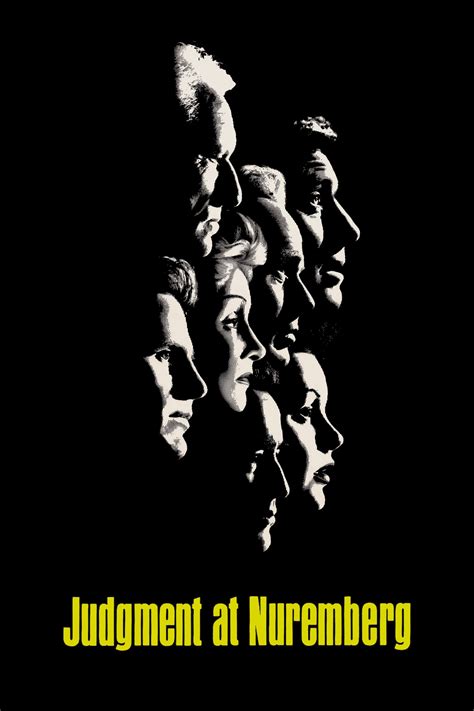Judgment at Nuremberg
directed by: Stanley Kramer, year: 1961
actors: Spencer Tracy, Burt Lancaster, Richard Widmark, Marlene Dietrich, Maximilian Schell
actors: Spencer Tracy, Burt Lancaster, Richard Widmark, Marlene Dietrich, Maximilian Schell

Description:
Judgment at Nuremberg is a gripping courtroom drama that explores the moral and legal complexities of the post-World War II Nuremberg Trials. The film delves into the prosecution of four German judges who upheld Nazi laws, raising questions about justice, accountability, and the human capacity for evil. With powerful performances and a thought-provoking script, it examines the impact of the Holocaust and the responsibility of individuals in the face of tyranny.Keywords:
Drama, Historical, Courtroom, War, NaziIs the movie Judgment at Nuremberg a true story?
Yes, "Judgment at Nuremberg" is inspired by true events. The film, released in 1961, dramatizes the Nuremberg Trials, where Nazi war criminals were prosecuted after World War II for crimes against humanity. It specifically focuses on the trial of German judges who were complicit in the Nazi regime's atrocities. While the characters and specific cases are fictionalized, the overarching themes and historical context are based on real events and the moral dilemmas faced during the trials.
Is Judgement at Nuremberg a good movie?
"Judgment at Nuremberg" is widely regarded as a powerful and thought-provoking film. Released in 1961, it dramatizes the post-World War II Nuremberg Trials, focusing on the moral complexities of justice, accountability, and the consequences of complacency in the face of tyranny. With strong performances, particularly from Spencer Tracy, Burt Lancaster, and Judy Garland, the film addresses profound themes of ethics and human rights. Its historical significance and emotional depth have earned it critical acclaim, making it a classic in American cinema.
How many Oscars did Judgment at Nuremberg win?
"Judgment at Nuremberg" won 2 Academy Awards out of 11 nominations. The film, released in 1961, received Oscars for Best Actor in a Leading Role (Maximilian Schell) and Best Adapted Screenplay (Abby Mann). It is a powerful courtroom drama that explores the moral complexities of justice in the aftermath of World War II.
Who won the best actor for judgement at Nuremberg?
In the film "Judgment at Nuremberg" (1961), Maximilian Schell won the Academy Award for Best Actor for his portrayal of the defense attorney Hans Rolfe. The film is a powerful courtroom drama that examines the moral complexities of justice following World War II, focusing on the Nuremberg Trials. Schell's performance was widely acclaimed, and his win marked a significant recognition of his talent in a film that tackles profound ethical issues.
Explore More Categories:
Choices Humiliation Peculiarities Domestic Tension Childhood Retro Aesthetic Hacking Rock Power Dynamics Resurrection Moral Dilemma Sibling Dynamics Alternate Timeline Compulsion Perfectionism British Community Theater Intimate Journey Mandalorian Home Invasion Betrayal Indigenous Cinema Trauma Paradox Iceland